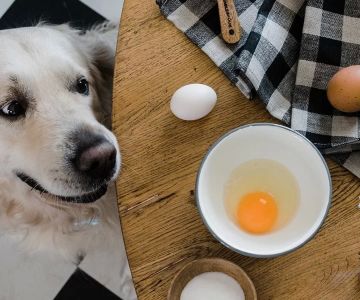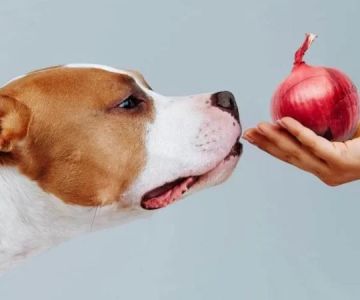- #can-dogs-eat-crackers—general-overview - occasional-treat - potential-risks
- #nutritional-content-of-crackers - salt-and-fat - additives-and-flavorings
- #safe-vs-unsafe-crackers - plain-vs-flavored - whole-grain-vs-processed
- #possible-health-risks - digestive-upset - obesity-and-sodium-toxicity
- #real-life-cases-and-stories - dog-stole-crackers - mild-upset-example
- #healthier-alternatives-to-crackers - dog-safe-snacks - natural-treat-ideas
- #how-to-handle-accidental-cracker-eating - first-aid-steps - when-to-call-the-vet
- #guidance-from-professionals - what-vets-say - long-term-feeding-advice
- #preventing-accidental-snacking - safe-storage - positive-training
- #how-hidden-brook-veterinary-helps - dietary-guidance - personalized-pet-care
Can Dogs Eat Crackers: General Overview
Many dog owners wonder: Can dogs eat crackers? The short answer is yes, dogs can nibble on a plain cracker occasionally, but crackers are far from an ideal snack. They offer little nutritional value and sometimes pose risks depending on ingredients. Knowing when it’s safe—and when it’s not—helps protect your dog’s health.
1) Occasional treat or mistake?
If your dog sneaks a cracker or two, it’s unlikely to cause serious harm. The bigger issue comes from repeated feeding or flavored varieties with high sodium or toxic ingredients.
Why moderation matters
Crackers are designed for humans, not pets. They don’t provide protein, vitamins, or minerals that dogs truly need. Feeding them regularly can lead to nutritional imbalance.
Nutritional Content of Crackers
2) Salt and fat levels
Most crackers are high in sodium and fat, which dogs process poorly. Excess salt can cause dehydration or even sodium ion poisoning if consumed in large amounts.
Additives and flavorings
Onion powder, garlic seasoning, cheese flavorings, and artificial preservatives often hide in crackers. Even small amounts of onion or garlic are toxic to dogs, making flavored crackers unsafe.
Safe vs. Unsafe Crackers
3) Plain vs. flavored
Plain, unsalted crackers in very small amounts are the only relatively safe choice. Avoid cheese crackers, garlic-seasoned varieties, or any with added butter and oils.
Whole grain vs. processed
While whole grain crackers may seem healthier, they still carry too much sodium and carbs for regular feeding. They’re not dangerous in small bites but shouldn’t replace real dog treats.
Possible Health Risks
4) Digestive upset
Dogs who eat multiple crackers may experience vomiting, diarrhea, or bloating. Some dogs are sensitive to wheat, leading to allergies or itchy skin flare-ups.
Obesity and sodium toxicity
Regular cracker feeding contributes to weight gain. Too much salt can trigger serious symptoms like tremors, excessive thirst, or even seizures in severe cases.
Real Life Cases and Stories
5) Dog stole a sleeve of crackers
One Labrador reportedly ate an entire pack of salted crackers left on a coffee table. He developed vomiting and needed fluids at the vet, reminding owners how quickly “harmless” snacks turn into emergencies.
Mild upset example
A small terrier who stole two plain crackers only had minor soft stool that resolved in a day, but her owner learned to store snacks out of reach.
Healthier Alternatives to Crackers
6) Dog-safe snacks
Instead of crackers, offer carrots, apple slices (without seeds), green beans, or vet-approved dog biscuits. These snacks support digestion and provide nutrients.
Natural treat ideas
Frozen blueberries or small pieces of cooked sweet potato make excellent low-calorie, safe alternatives for dogs that love crunchy bites.
How to Handle Accidental Cracker Eating
7) First aid steps
If your dog eats a small amount of plain cracker, monitor for any signs of stomach upset. Offer water and allow rest. Avoid giving more human snacks.
When to call the vet
If your dog consumes a large number of crackers—especially flavored ones with onion, garlic, or cheese powder—call your veterinarian immediately for guidance.
Guidance From Professionals
8) What veterinarians say
Most veterinarians agree crackers should not be a routine snack. They may be harmless in rare, tiny amounts, but they don’t add value to a dog’s diet.
Long-term feeding advice
Dogs thrive on balanced, protein-rich diets designed for them. Human snacks like crackers are more harmful than helpful when it comes to long-term health.
Preventing Accidental Snacking
9) Safe storage
Keep cracker boxes and snack bags out of reach, especially if your dog is known for counter-surfing or raiding lunch bags.
Positive training
Training your dog to “leave it” is an effective way to prevent accidental cracker eating and keeps them safer overall.
How Hidden Brook Veterinary Helps
10) Support with nutrition and health
If you’re unsure whether certain human foods are safe, Hidden Brook Veterinary offers tailored nutritional guidance and the right products for your pet’s health. Their team ensures that your dog enjoys treats safely without risking unnecessary health issues.
Personalized pet care
They can also design a plan for safe snacks and recommend alternatives that match your dog’s age, weight, and health conditions.
Safety Note
This article is educational and does not replace veterinary care. If your dog consumes large quantities of crackers or flavored types with harmful additives, seek immediate veterinary help.











